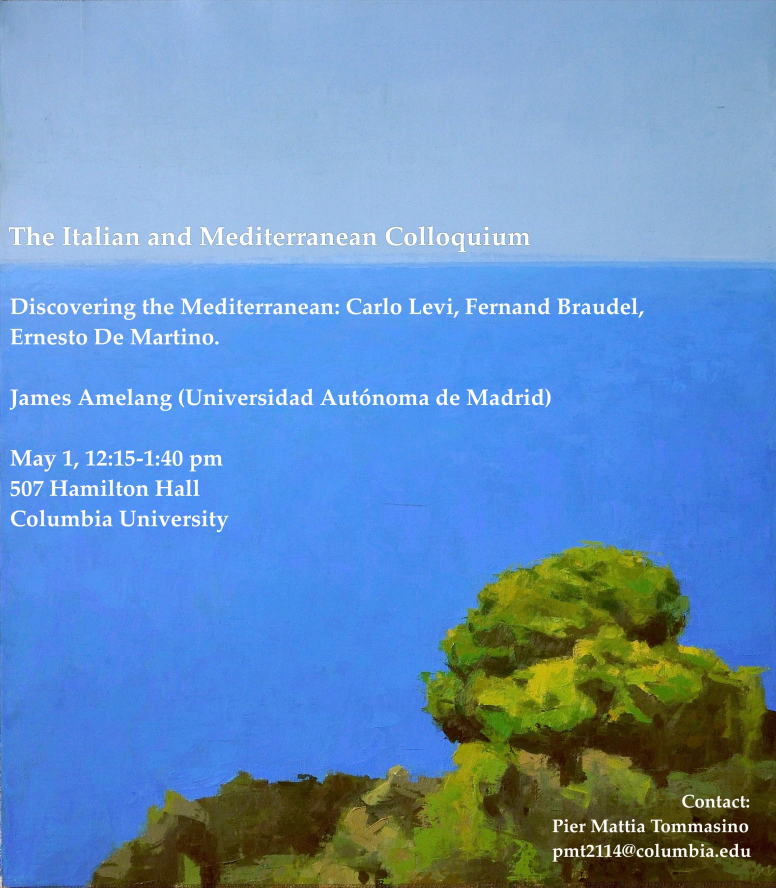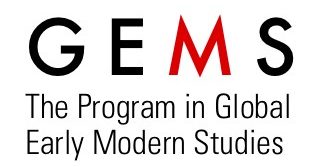May 1 | IMC, James Amelang, 12:15 pm
The Department of Italian at Columbia University is pleased to invite you to the following lecture in the context of the Italian and Mediterranean Colloquium:
Discovering the Mediterranean: Carlo Levi, Fernand Braudel, Ernesto De Martino.
James Amelang (Universidad Autónoma de Madrid)
May 1, 12:15-1:40 pm
507 Hamilton Hall
Columbia University
Two of the most influential twentieth-century texts on the Mediterranean were written under oddly similar circumstances. The Turin-born anti-fascist intellectual Carlo Levi wrote the book that made him famous — Cristo si è fermato a Eboli, originally published in 1945 — after spending a year in internal exile in the southern region of Basilicata during the mid-1930s. Meanwhile, the French historian Fernand Braudel’s The Mediterranean world in the age of Philip II (1949) took final shape while the author was in a German prisoner-of-war camp during the Second World War. While these two works differed in many respects, they shared the same vision of the Mediterranean as the locus of a millennial culture of deep continuities — so deep in fact as to exist largely outside the central historical dynamic of change over time. Yet this vision would soon be challenged on various fronts. One of the most interesting criticisms was voiced by the Neapolitan anthropologist Ernesto de Martino. In a short but intense career he wrote a series of works that strove to grapple with the contradictions of cultural change in an area famous for lacking it — his native Mezzogiorno. De Martino conceived the most famous of his studies — an analytical reconstruction of ritual mourning by village women in the same area which Levi had written about — as a direct reply to the latter’s melancholic ahistoricism. In so doing he initiated a brief but intense exchange of considerable relevance to cultural history today, called to measure the extent and depth of change in the past amid the dizzying pace of transformation in the present.
James Amelang is Professor of Early Modern History at the Departamento de Historia Moderna, Universidad Autónoma, Madrid. His main fields of interest are the social and cultural history of early modern Barcelona, the history of early modern Spain and urban discourse in early modern Europe and in the Mediterranean. He is author of Honored citizens of Barcelona: patrician culture and class relations, 1490-1714 (Princeton University Press, 1986), The Flight of Icarus: Popular Autobiography in Early Modern Europe (Stanford University Press, 1998), and Parallel histories, Muslims and Jews in Inquisitorial Spain, (Madrid, 2011, English edition: Louisiana State University Press, 2013).




